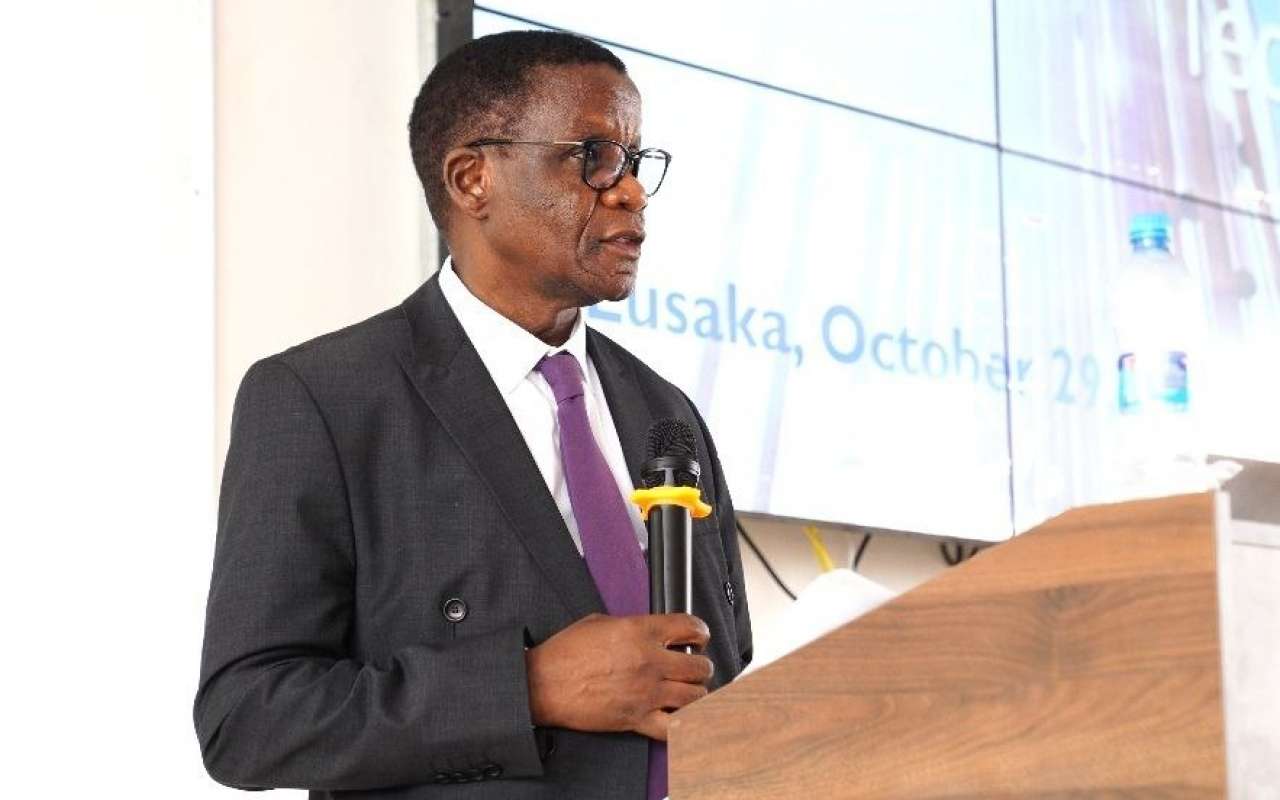"Together With Institutions like LETI, We Aim to Make Zambia a Leader in Robotics and Technological Innovation": Vice-Chancellor of the University of Zambia Commented on the Development of Robotics and International University Cooperation

At Days of Robotics and Innovative Educational Technologies, Rector of the University of Zambia (UNZA), Professor Mundia Muya addressed the role of the robotics in the technological development of Zambia and shared his impressions of the project conducted by ETU “LETI”.
01.11.2024 229
From October 29 to 31, 2024, in Lusaka, capital city of Zambia, ETU "LETI" together with Rossotrudnichestvo and the Russian Science and Technology Centre in Lusaka held Days of Robotics and Innovative Educational Technologies. During the event, took place a visiting session the University of Zambia (UNZA), where Rector of UNZA, Professor Mundia Muya addressed the role of the robotics in the technological development of Zambia and shared his impressions of the project conducted by ETU “LETI”.
UNZA trains specialists in many fields, from agrotechnology and mining engineering to emergency management. Robotics and VR and AR have proved to be immensely useful in all economic spheres.
Virtual reality and augmented reality, VR and AR, can provide immense simulations, enabling students to program and test robots in virtual spaces. This could be especially valuable in fields like mining, where students can simulate underground conditions without physical risk. Robotics competitions and hackathons are excellent avenues for innovation in South Africa. For example, students participate in robotics contests, where they build robots for social good, such as disaster relief. Competition like these inspires them to think creatively and work as a team, developing solutions that benefit society. Robotics offers practical applications across Zambia's core economic sectors such as agriculture.
With nearly 60% of Zambia's workforce employed in agriculture, robotics can significantly enhance efficiency. Drones and ground robots can perform precision planting, monitor crop health, and even detect pests, improving health as well as saving resources.
Autonomous robots can be used in the exploration and surveying of mines, making mining safer and more efficient. Underground drones equipped with sensors can detect hazardous gases, increasing the safety of our miners. In energy, robots can contribute to endless renewable energy goals. Robotic systems can monitor and maintain solar panels, imagine energy production and minimize downtime in solar farms.
In the healthcare sector, robots can assist in surgeries and enhance patient care, as seen with telemedicine. Robots that allow doctors to remotely diagnose and treat patients in remote areas, this is a concept that would be particularly beneficial in Zambia.
However, there are challenges in robotics education. Of course, implementing robotics education presents challenges. Robots equipment is expensive and many schools lack access to the resources needed to establish robotics labs. Additionally, training teachers to deliver robotics education is essential, but can be costly.
However, this challenge is also open doors for cooperation. Partnering with technology-famous government agencies and international institutions can provide the funding, training and equipment needed to build robotics products. Partnerships with industry players, international bodies and local stakeholders will help bring robotics into more Zambian industries.
Robotics is not only a technical discipline but also a powerful tool for fostering a culture of innovation. It inspires students to experiment, teaches them to embrace failure and helps them solve real-world problems. These skills are critically important for preparing graduates who can think critically and act boldly in any field.
We hope students become the innovators and leaders of tomorrow, able to address the unique challenges of Zambia and Africa as a whole. I urge schools, universities, policymakers and industry to invest in robotics education to build a prosperous future for Zambians. The investor of Zambia is committed to this vision.
Together with institutions like yours, we aim to make Zambia a leader in robotics and technological innovation. By joining forces, we will create a bright future, establishing our universities as centers of knowledge and creativity. I sincerely thank you for your project!